Outtakes from the NY Mag Interview
Sojourner Wildfire - featured in the New York Magazine article by Alex Morris. April 2nd, 2018.
Photo by Bobby Doherty
Our little family was featured in New York Magazine's April 2nd issue. The full "It's a Theyby!" article, by Alex Morris, can be found on The Cut.
It was the first media interview I accepted, and I accepted because the journalist was Alex Morris. I looked Alex up and read her Rolling Stone interviews with Evan Rachel Wood and Halsey, and her article about Planned Parenthood, and I felt like she "got it" and our story would be in good hands. We had a video-chat and phone conversation for about three hours and we texted and emailed back and forth over the two weeks before the article came out. After meeting with her editor, she had some more questions for me, which I responded to via e-mail. I thought it would be nice to share my responses with our readers because it provides some more details and nuance than what could fit in the NY Mag feature. So, without further ado, here are some of Alex's questions and my responses.
Have you ever messed up the pronouns, and if so, did that bother you? Does it bother you when friends or family accidentally do?
I call them ‘slips’ when I use a gendered pronoun for Zoomer, and yes, I’ve certainly done it, although not nearly as much as I thought I might. I have found that I’m most likely to slip if I’m talking really quickly or if I’m tired. I haven’t slipped much, but it has gotten less frequent as Z gets older and I think of Zoomer as they/them, like any other parent would think of their daughter like “she” or son like “he” and wouldn’t be very likely to slip and use a different pronoun for them.
Using they/them pronouns is not the most important part of gender-creative parenting, but for me it is a mandatory part, but it’s okay if I ‘slip’ a handful of times over the course of 2 years, I’m not going to beat myself up about it. Especially because I’m not misgendering Zoomer right now because they have not expressed their gender identity to us or the pronouns they want to use. When I do slip, which isn’t often, I like to throw in the other gendered pronoun at some point in the conversation, and leave the person thinking, “Gosh, Kyl used a lot of different pronouns” and be none the wiser. 😉
On a few occasions, people who know what Zoomer’s genitals are have slipped and used the gendered pronoun that people traditionally associate with Z’s genitals, but they always immediately revert back to they/them. But funnily, sometimes people slip and use the pronoun that isn’t typically associated with Z’s genitals, even when they know Z’s genitals. I’ve slipped and used both ‘she’ and ‘he’ pronouns before, which just seems silly to me, and I can’t explain it.
Sometimes people who don’t know Z’s genitals will slip and use a gendered pronoun but I’ve found they are more likely to use the pronoun of their own child. For example, someone with a daughter will call Zoomer ‘she’ and someone with a son will call Zoomer ‘he’ because it’s just the pronoun they are used to saying.
When people use gendered pronouns for Zoomer, it doesn’t generally bother me. I got a little bugged by it in the beginning, but I learned people don’t slip to be mean (in my experience), but I think that the older Z gets, the less people slip, because they think of Zoomer as gender creative and they/them comes more naturally now. I actually found it endearing in the beginning, seeing our family try so hard to use gender neutral pronouns and it taking time to get used to. The first time I saw my parents write ‘they’ or ‘their’ for Z in a text or holiday card made me really happy and proud and it felt special that they were consciously making efforts to use gender neutral pronouns for Z. It just felt sweet and still does.
Different situations call for different reactions from me. If a server asks “would she like some water?” or “what can I get him?” I don’t say, “actually, we use gender-neutral pronouns.” I just say, “yes, please” or “they will have pancakes.” If we are in a situation where we will be engaging often (pediatrician, a space for a birthday party) I tell people, “we use gender-neutral pronouns for Zoomer, like ‘they, them and their’ or you can just call them Z or Zoomer.” I want that in our chart, because I don’t want to deal with a medical assistant using gendered pronouns all the time. It feels appropriate to ensure that people know we use gender neutral pronouns for Zoomer when they will be interacting with Z regularly. That has been easy, and we haven’t gotten ANY negative kickback. People have been so eager to accommodate us and use gender neutral pronouns and apologize when they slip, and we tell them it’s ok and that we really appreciate them trying.
I think people can be gender-creative parents and use gendered pronouns for their kids, or oscillate between gendered pronouns and they/them pronouns depending on where they are (maybe gendered pronouns in public and family events, but they/them at home and with their queer community or more like-minded friends). The real purpose of gender creative parenting, for me, is making sure my child isn’t treated like a stereotype, and using gender-neutral pronouns really helps create some control around that. Because we use gender-neutral pronouns and don’t disclose Z’s sex, people don’t say “he’s such a boy!” or “she’s such a diva!” and that’s because they don’t have the pronoun information that people use to reduce children down to a gendered stereotype. A lot of people might think “you can raise a kid outside of a gender binary and not use they/them pronouns” – maaaybe, but I don’t think it would have worked out as well for us if we were using gendered pronouns for Z. I think it actually would have been a lot more work to use gendered pronouns and try to still create this very gender creative environment for them. Gender neutral pronouns make the practice more conscious and purposeful.
You mentioned that your parents were concerned for you when you told them that you wanted to parent this way. Did they voice what concerns they had, specifically?
I would say our parents’ concerns were two-fold:
They were concerned we would experience an onslaught of negative attention from the media and just hateful people in general (knock on wood, this article may just release the gates). So they were just scared on our behalf that we could potentially be a spectacle.
1a. A footnote to that thought. I’m sure there are awful comments about me and our parenting practice in the comment section of my TEDx talk on YouTube, but I’ve never read even one comment and I never will, because I see no point in scrolling through that garbage, and I like to think someone else is in there defending my message. I said what I had to say in the TEDx Talk, and it’s not my job to respond to comments from rude people. And maybe there’s Reddit threads or blog posts out there that trash-talk me, but I don’t search for them. Nope, nope, nope. Never-Read-The-Comments-On-Anything-About-You is my motto.
1b. Another footnote, negative media attention was a risk of parenting this way – but… 1) it doesn’t take being a gender creative parent to find yourself in a negative media spotlight, and 2) the pros of gender creative parenting will never be outweighed by the cons that are anonymous bullies on the internet (which we’ve had very few of over the last 2 years). To be honest, being a public resource about Gender Creative Parenting has brought so much good into our lives. We’ve helped provide perspective or support to parents of transgender and queer youth, we’ve befriended non-binary and transgender teenagers, we’ve become friends with other gender creative parents, and inspired young adults to consider gender creative parenting when they want to start a family, we’ve been accessible and kind and been able to help other parents come to their own conclusions of how they can treat their sons and daughters more equally. I think Gender Creative Parenting is happening whether people like it or not and Gender Creative Parents will be more than a tiny proportion of parents in the near future – therefore, our little family won’t be bearing the weight of the negative press as much as Sasha and Storm’s parents did.
2. I think our parents might have been concerned that a gender creative child didn’t align with their ideas/hopes of grandparenthood. When we initially told them we weren’t going to disclose Z’s sex and we were going to use gender neutral pronouns, I think our parents might have thought that we were taking away valuable experiences from them, like bathing their grandchild. Once we helped them understand that of course they could eventually know Z’s sex and bathe Z, we just wanted them to understand how important it was to us to parent this way and to use they/them pronouns. We wanted them to know how important it was for us that Zoomer was treated like a grandchild and not a grandson/granddaughter rife with hyper-gendered interactions. In all fairness to our family – this was not a big ask of them. Both my family and Brent’s family are so incredible and egalitarian and inclusive and kind and open-minded. When I say our parents had some concerns or confusion, it was very temporary (days) and resolved through conversations and reassurance that we were confident in what we were doing. Another thing I had to help some family members (and others) understand is that Zoomer would let us know their gender identity by the time they were 3 or 4, most likely, when most kids have a sense of their gender identity (of course as they grow and mature, their gender identity may change or be fluid, and growing up in a gender creative home will hopefully give Z the freedom and confidence to feel comfortable to express their gender however they want). In the grand scheme of things, 3-4 years is not a long time, and we assured them, Zoomer will know who they are, and Z will be amazing, and even more amazing because they have family like you in their life. I think that’s very true. And I think our family trusts us as Z’s parents and absolutely adore Zoomer and I’d dare say that our families love that Zoomer is gender creative.
What’s your reaction to the possibility that your child might be “othered” in some way by the people around them simply because of the pronouns they use?
Over the last 2 years, Zoomer has not been othered because of the pronouns we use for them. They have been embraced and welcomed. If they have been othered, it would be around us, and we haven’t noticed. Frankly, if someone doesn’t want to have anything to do with Zoomer (who is the coolest toddler about) because of their pronouns, then good riddance. I know there are probably people who I went to high school with who love gossiping about me, but they aren’t doing it to my face, so ignorance is bliss.
Zoomer’s world is relatively small at the moment and will likely remain small until they go to kindergarten and at that point, Z will be able to articulate their gender identity and their pronouns. And if Z wants to continue using they/them pronouns I like to think that it wouldn’t be an issue for them because most people won’t think of they/them pronouns as ‘weird.’ I always write “she/her or they/them” on name tags for myself and some people in the community refer to me as they/them, we also have friends whose pronouns are they/them, so Zoomer isn’t growing up in an environment where they will feel like they are an anomaly.
Z has us and our extended family and friendship group who are all amazing and adore Z. Zoomer is in a little daycare that they will attend until they go to kindergarten. We have a wonderful relationship with the directors and all the teachers there who all know and love Z, and actually, all new teachers watch my TEDx talk during their training so they are aware of Z and they can ask us any questions they have. We know the parents of all of Zoomer’s classmates and have a great relationship with them. Honestly, Zoomer is adored by so many people in our community. We go to a café for coffees and brunch and the servers and owner love Zoomer. Our local smoothie and ice cream shop owners spoil Z and give them free treats. People who follow our Instagram account, or who’ve seen my TEDx talk or have heard me speak in the community say hi to us at the farmers market and the grocery store.
I don’t think we’ve been othered at all. Zoomer’s a little star in Salt Lake City. Brent literally gets asked if he’s Zoomer’s dad, which is hilarious. Being Gender Creative Parents has made us more friends. That might not be the experience for all gender creative parents. But we strive to be accessible and kind and respectful and that has helped us, I think. And we have such an amazing network of people in our lives.
In your particular case (and if it’s even possible to quantify), how much of this type of parenting is about accommodating the potential that your kid might be gender non-conforming, and how much is it about trying to rewire the brain regarding gender?
A part of why we are parenting this way is because intersex people exist and transgender people exist, and queer people exist, and sex and gender occur on a spectrum yet our culture loves to think people, all 7 billion of them, can and should be categorized as one of two options, and reduces unique, diverse individuals down to either/or. Either penis or vagina, either male or female, either boy or girl, either man or woman, either masculine or feminine, either straight or straight, and monogamous or monogamous. I’m very tired of the heteronormative and cisnormative model. I’m very tired of the patriarchy. When I got pregnant, I did not want to go with the heteronormative, cisnormative, patriarchal flow and teach my kid that model. So I didn’t.
I would say that the primary reason that we wanted to parent this way was because we wanted to re-write the script for how our child grew up to think about gender. We thought Gender Creative Parenting was the best way we could teach Zoomer about how we wanted them to learn/think about gender and sexuality. We never wanted our child to hear that something wasn’t for them, or that they were expected to behave a certain way, or like a certain thing, or dislike a certain thing, based on their sex chromosomes. Gender Creative Parenting felt like the best way we could mitigate sexism and gendered microagressions against our child. I just could not imagine raising a “boy” or a “girl” how our culture expects us to raise boys and girls, I want to change the expectation and norm for how boys and girls are raised. I see way too many of the connections between childhood gender socialization and so many of the gender disparities we see in adulthood, whether health disparities, political disparities, STEM disparities, the gender wage gap, parenting inequities, homophobia and transphobia, rape culture, gendered violence, etc. There was just no way I was going to have a baby, and label them as “this” or “that” and invite the world to perpetuate gender stereotypes on to them. For me, parenting that way felt like I would be offering my child a host of socially constructed issues and disparities. I think that gender socialization is in need of a serious overhaul and I think that gender creative parenting is one of the solutions.
I also think that too many people feel comfortable about the pace at which gender equity is progressing. I’m not comfortable. We need drastic systemic changes to be made, and if more people commit to gender creative parenting, I think those gender creative kids could grow up and bring that radical change.
What will you say if/when Zoomer starts asking about gender or noticing the (socialized) difference between kids being raised as either boys and girls?
I will have conversations with Zoomer to help them understand that boys and girls are much more similar than they are different and a lot of the differences they are noticing are socially constructed. I try really hard to not say stereotypically gendered things about children or adults because I know Zoomer is listening to me. I feel very fortunate that the gendered lines appear very blurry in their world right now. I am sure they are picking up on gender and how people talk about boys and girls, but I am continuously talking to them about diversity and equality and I model language that doesn’t make assumptions about people. I use they/them pronouns until I know someone’s pronouns and I say “person” or “adult” instead of man or woman and “friend” instead of boy or girl, and “little one” for babies and toddlers, I say “partner” instead of girlfriend/boyfriend/husband/wife until the person lets me know what words to use. I don’t want Zoomer to make assumptions about people, so I try to model that behavior.
At daycare, there are boys with long hair and painted nails and girls with short hair who are damn good climbers. They all like to dance, and cuddle, and make sounds like firetrucks. All of the kids get called “friends” not boys or girls, and kids get to play with kitchen sets and little excavators. There isn’t any gender segregation at daycare and all the kids play together. Whenever the kids get muddy, the teachers just grab a bunch of clothes and put them on the kids, paying no attention to picking outfits that coordinate with gender. It’s awesome. I feel like if you asked someone to go into Z’s classroom and pick out “the gender creative kid” the person would struggle to do so. I think that’s a testament to how many parents are already doing gender creative parenting in a way, just without the they/them part.
I talk a lot to Zoomer about what we’re seeing. An example: we’ve been watching PAW Patrol, and I’ve noticed a few things. 1: In the episodes we’ve been watching, there is only one ‘girl’ dog, “Skye,” and 5 ‘boy’ dogs. 2: Skye is accessorized in pink and is the only pup with eyelashes. 3: Rubble, is a little English Bulldog that is sensitive and sweet but makes excuses about his emotions. I want Zoomer to enjoy the things they like – and they aren’t growing up in a vacuum, so they watch some TV, and it actually gives me time to watch with them and call out the things I’m seeing and talk to them about it. I don’t know if Zoomer realizes that Skye is a girl dog and the other five are boy dogs or that the boy dogs don’t have eyelashes, but they do understand emotions, and they know when Rubble is tearing up because a baby whale is beached and can’t get to its parent, and when one of the dogs asks Rubble if he’s ok and Rubble says, “I just have sand in my eye,” I take that opportunity to tell Zoomer that it is perfectly normal to be emotional about a baby whale trying to get to its parent and that it is okay for boys and girls and all people to cry when they are feeling sad or overwhelmed and I think it’s really wonderful that Rubble is so in tune with his emotions.
All sorts of parents are taking the time to watch TV with their kids and use it as an opportunity to describe to their kids the type of world they want for them. There was a great article about Emma the new Wiggle and how there’s a gender problem. I wish that television was more gender creative, and that there was visibility of more nonbinary characters – it goes to show we still have a long way to go and that we should be doing better!
Zoomer does point to other people and say “mama” or “dada” – they will point to people with beards and say “dada” and they will call people with long hair “mama” – so they have picked up on some differences between Brent and me and are recognizing similarities that we have with other people. I will typically say something like, “that person does have a beard like dada.” Or “that person does have long hair like mama” but I’m not going to say, “Yup, that’s a dad” or “that’s a mom” because that would be me assuming that person’s gender identity and lobbing women and mamas as synonyms (and that’s problematic). Z is two, so we’re laying the foundation to have more complex conversations in the future. All I can do now, is narrate the world how I want them to experience it. That not all people with long hair are women, or mamas. And some kids have two dadas. And crying is healthy, and we should smile to our friends and say hello to them! Z lives in a very friendly and they/them world at the moment.
Any details about the lived experience of being a gender creative family? Besides the pronoun usage and gender stereotype avoidance, are there any specific details or stories that sort of give a window into what it’s like?
I think that being a Gender Creative Parent keeps me more alert and proactive about behaving how I want to behave. I am trying to model behavior for Zoomer so I am very conscious about what I say and don’t say and what I do and don’t do.
The biggest thing is that Brent and I equally share parenting and all things domestic. We want Zoomer to know that Brent and I both go to work, and we both cook, and we both clean and we both can do Zoomer’s hair and both mow the lawn and pick them up from school, we equally pick up take-out when we’re too tired to adult, etc. Zoomer won’t grow up thinking women and men have different roles in the home or as parents. I am very proud of that.
We honor people’s pronouns but choose to use gender neutral pronouns whenever we can. We usually use character’s pronouns for example, Z has a stuffed Dory toy, and we say ‘she’ when referring to Dory, because Dory is a she. And Zoomer has a stuffed dog, that we’ve named Dante after the dog in CoCo, cause Z loved Dante in CoCo.
Zoomer has stuffed animals that we’ve taken the liberty of naming and using gender neutral pronouns for. There’s a stuffed horse that I got Zoomer from the Denver airport on a work trip. There’s a tag on it that says “Douglas” and when Z saw it, they said “Neigh,” so it is now “NayNay Douglas, the Airport Horse” and has they/them pronouns.
Z also has a stuffed fox, which we’ve named Zor, since the Spanish word for Fox is Zorro or Zorra, so we thought Zor could be the gender creative version. We have a Betta fish, Popcorn, who we use they/them pronouns for. We aren’t going to gender things that don’t need to be gendered.
I have noticed that so many books that have trucks or animals are always using ‘he/him/his’ pronouns and I change those. For example, “Goodnight Goodnight Construction Site,” uses ONLY he/him/his pronouns for every damn truck in the book. So, sometimes the cement mixer is a “she” when I read it, and the bulldozer is a “they.” I will alternate pronouns to get a good mix in. We are mindful about the books we buy and try to get books that have people of color, or same-sex parents, or good messages about kindness and friendship.
When we buy clothes for Zoomer we try to seek out brands that aren’t gender segregated, and when we shop at Target/H&M/Gap, we make sure to look at the clothes in the section marketed towards boys and the section marketed towards girls and pick out clothes that have fun colors and prints and seem comfortable. Z likes to pick clothes out now, so we give them some options and they’ll choose what they want to wear.
When you think of yourself as a gender creative parent, what does that mean in terms of your own identity? Does it make you feel defiant/proud/ahead-of-the-curve/all of the above/none of the above? Has parenting like this changed your sense of self in any way?
Being a gender creative parent is definitely a part of my identity and it has changed my sense of self. I feel very responsible for Zoomer’s wellbeing, as parents do for their kids, and I was willing to sacrifice my status as a ‘regular’ person to be a gender creative parent and do something very radical and different so that my child could have the freedom to self-identify without the weight of gender stereotypes. But the reality has been that people are so kind and don’t treat me like I’m not ‘regular’ at all and I feel so confident now that I have no anxiety at all about telling people about Zoomer and Gender Creative Parenting. I feel proud that I am a gender creative parent. I feel relieved that it has gone so well for us and that Zoomer is so happy and amazing and healthy. Sometimes a critique of gender creative parenting is that the child will struggle with finding their identity. I would love to see those people spend an afternoon with Z and tell me with a straight face that Zoomer is struggling to have an identity. Zoomer is full of life, and so hilarious and compassionate, and self-aware, and communicative. I am so proud of Zoomer. And I’m so proud to be their parent, and I’m grateful I chose to parent this way and I’m relieved that it was so much easier than I anticipated. Parenting this way feels ‘right’ for me. As soon as it was clear to me that adulthood gender inequalities were created in childhood, I couldn’t un-see that. I felt a responsibility to parent this way. I’ve never doubted it and I am so happy that Brent and I chose to parent this way and that we chose to be out about it and to be a resource for other people who are interested in it. I have been invited to give lectures at Universities about gender creative parenting, and it is rewarding to hear from college students that they feel like I have provided them with an alternative way of parenting that resonates with them and that they will practice gender creative parenting when they start a family. Turns out, there is a community of Gender Creative Parents out there already, raising theybies and changing the world, and I am honored to be a part of it.
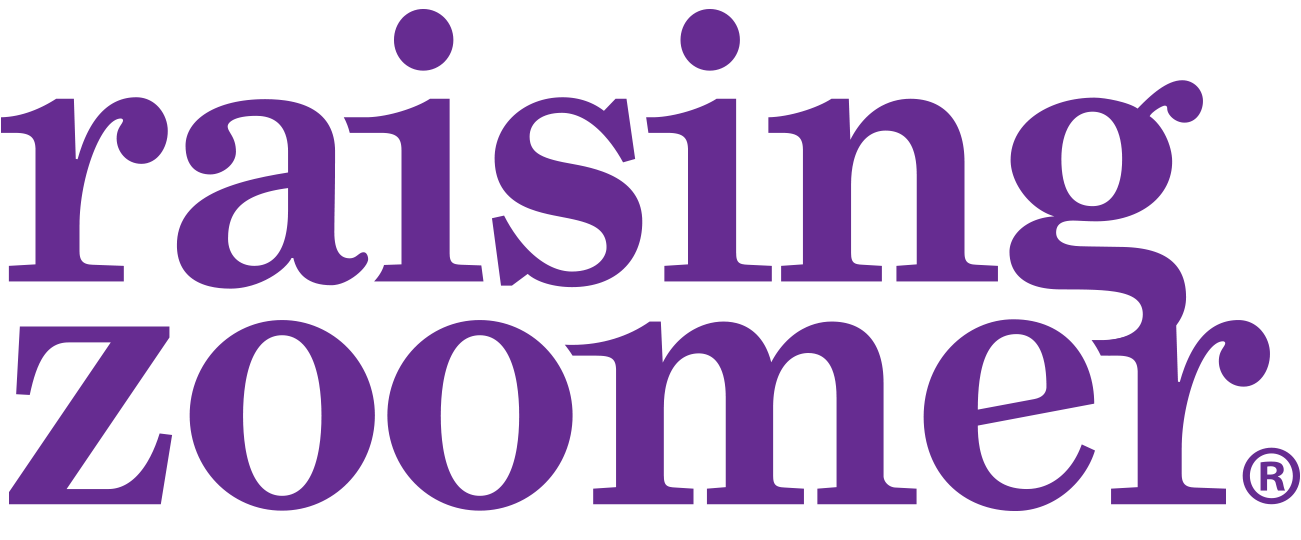
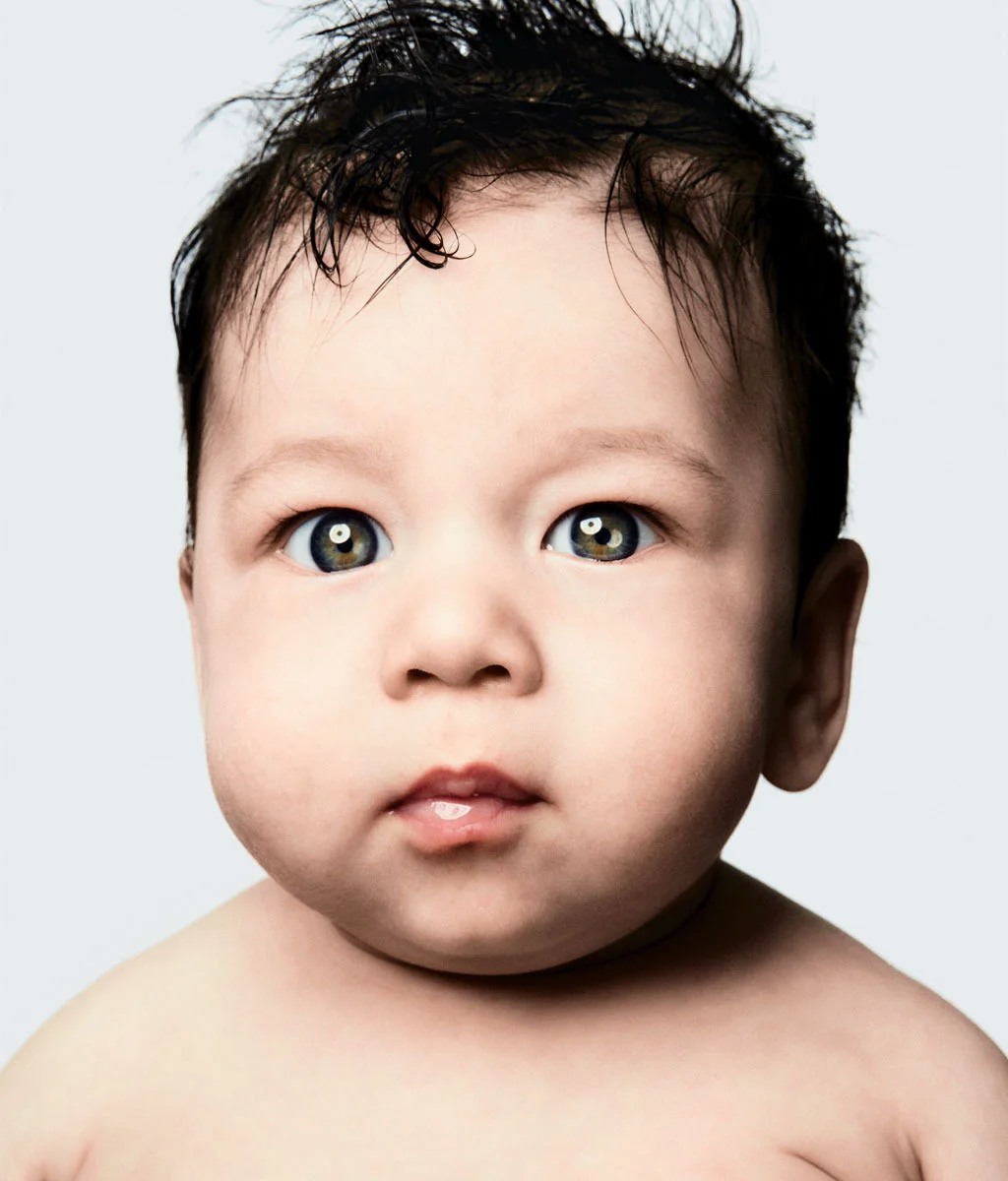


![Strange[r] Encounters](https://images.squarespace-cdn.com/content/v1/5682c206a128e6493c2b9210/1473001979184-BEESRX1XI71XX6LOXV7V/Stocksy_txp0decdd98ZD8100_Small_690275.jpg)
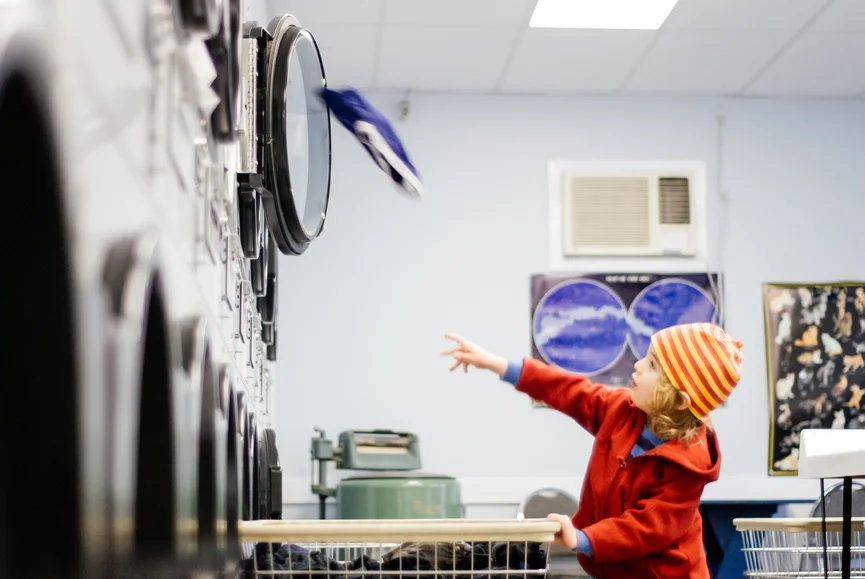
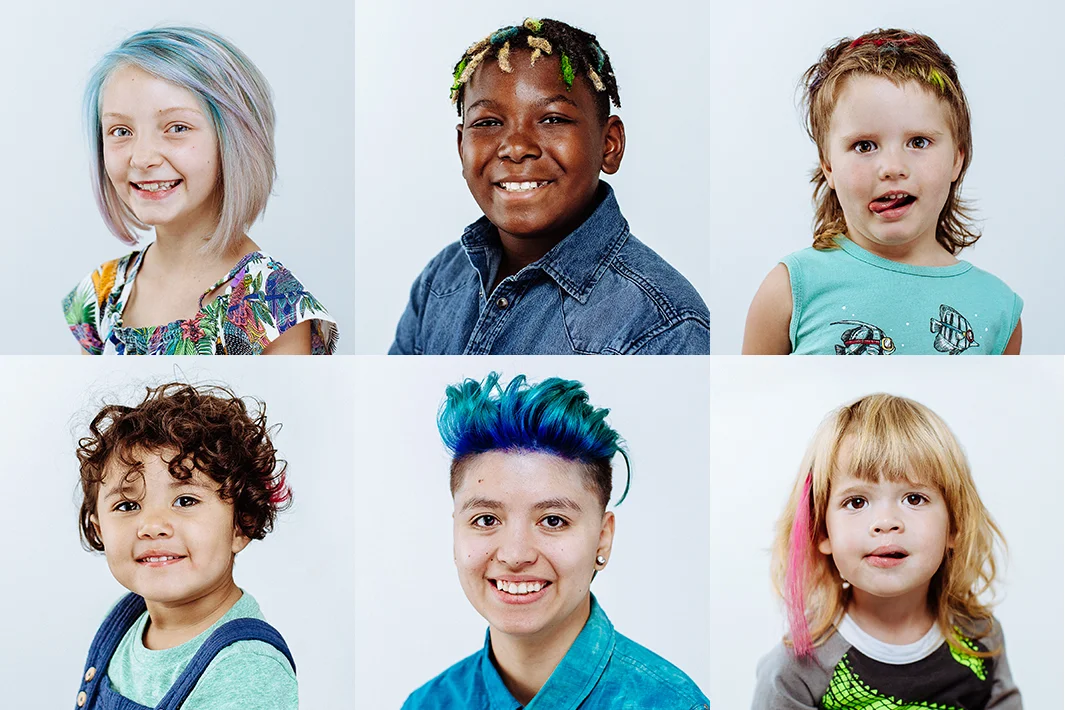

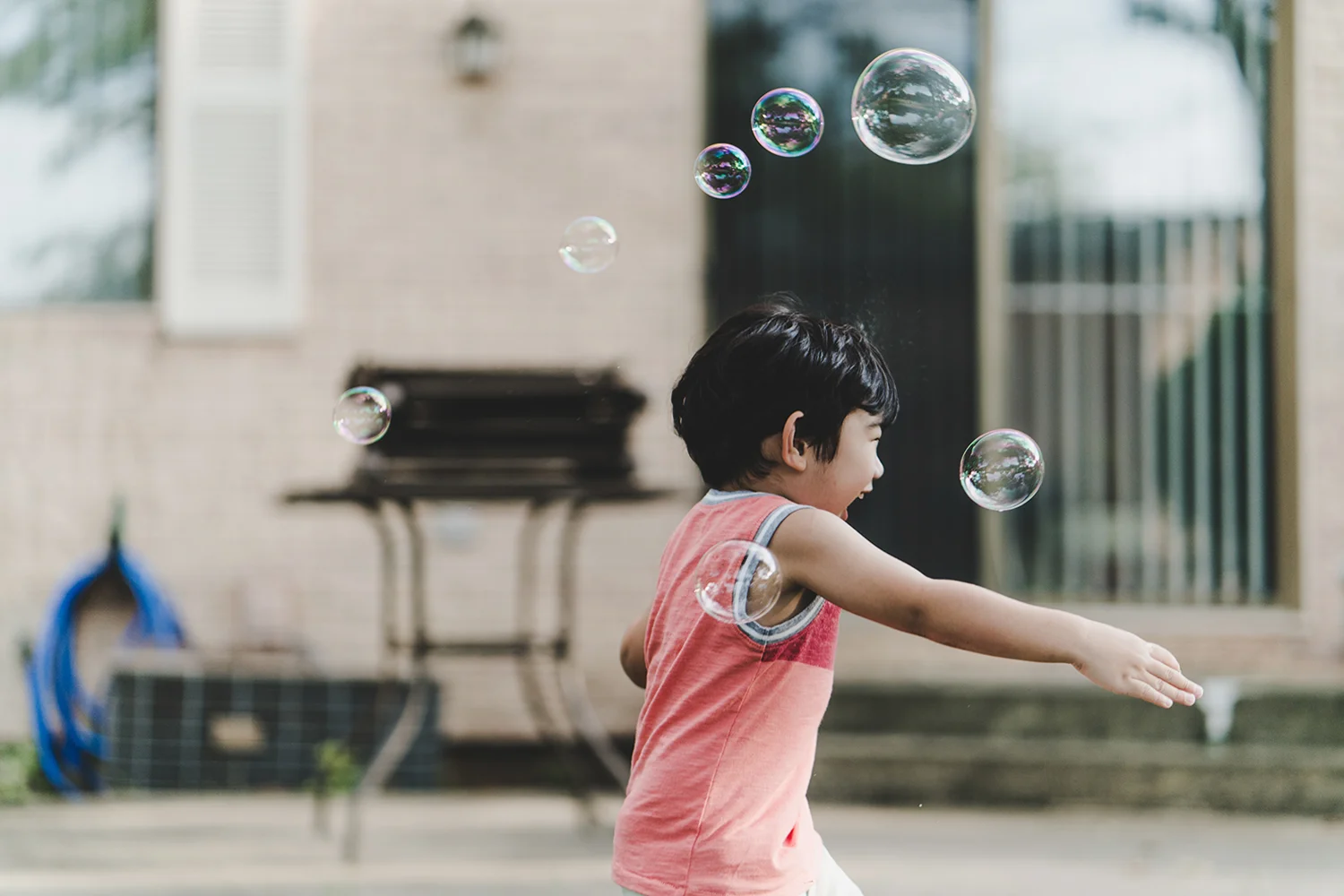
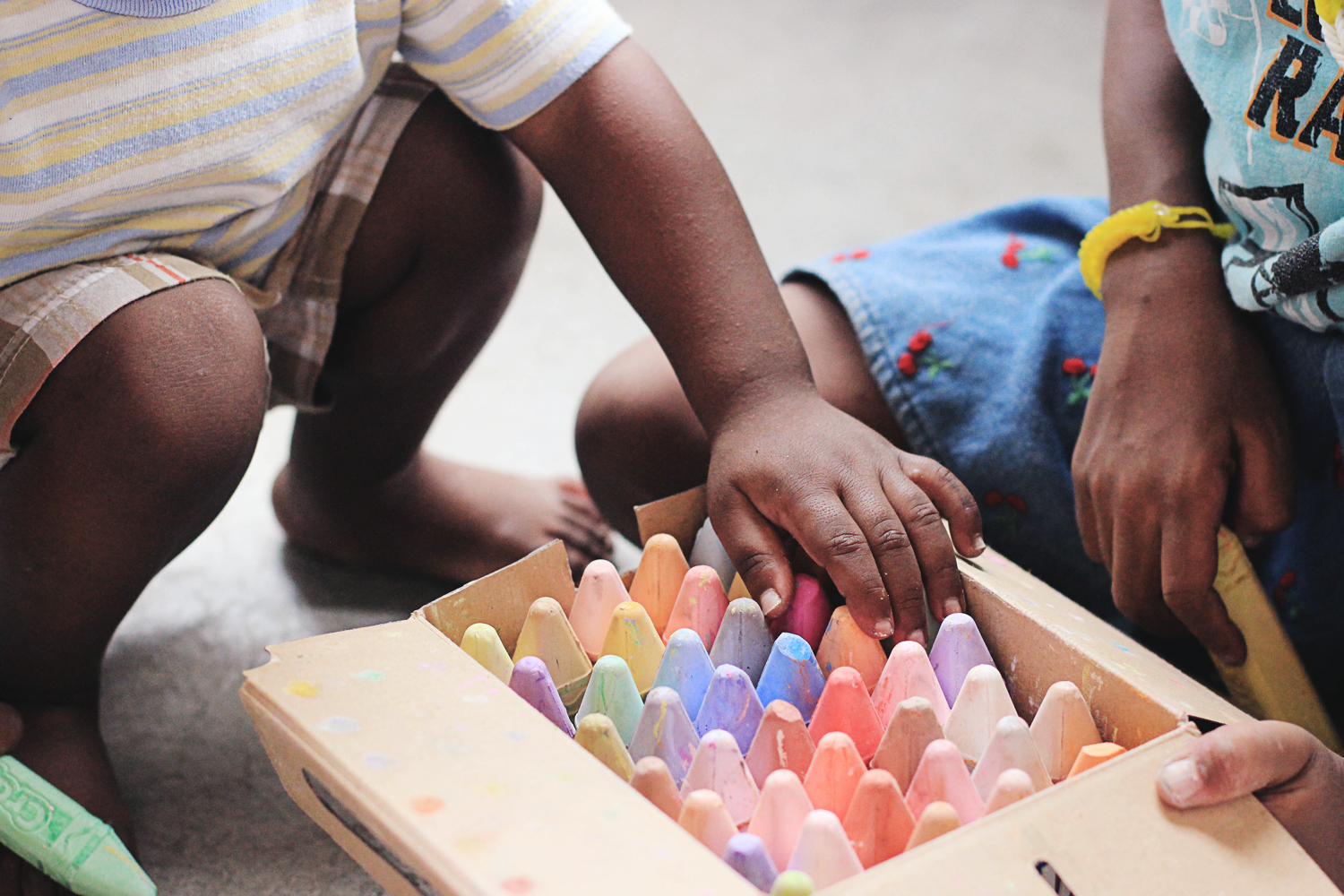

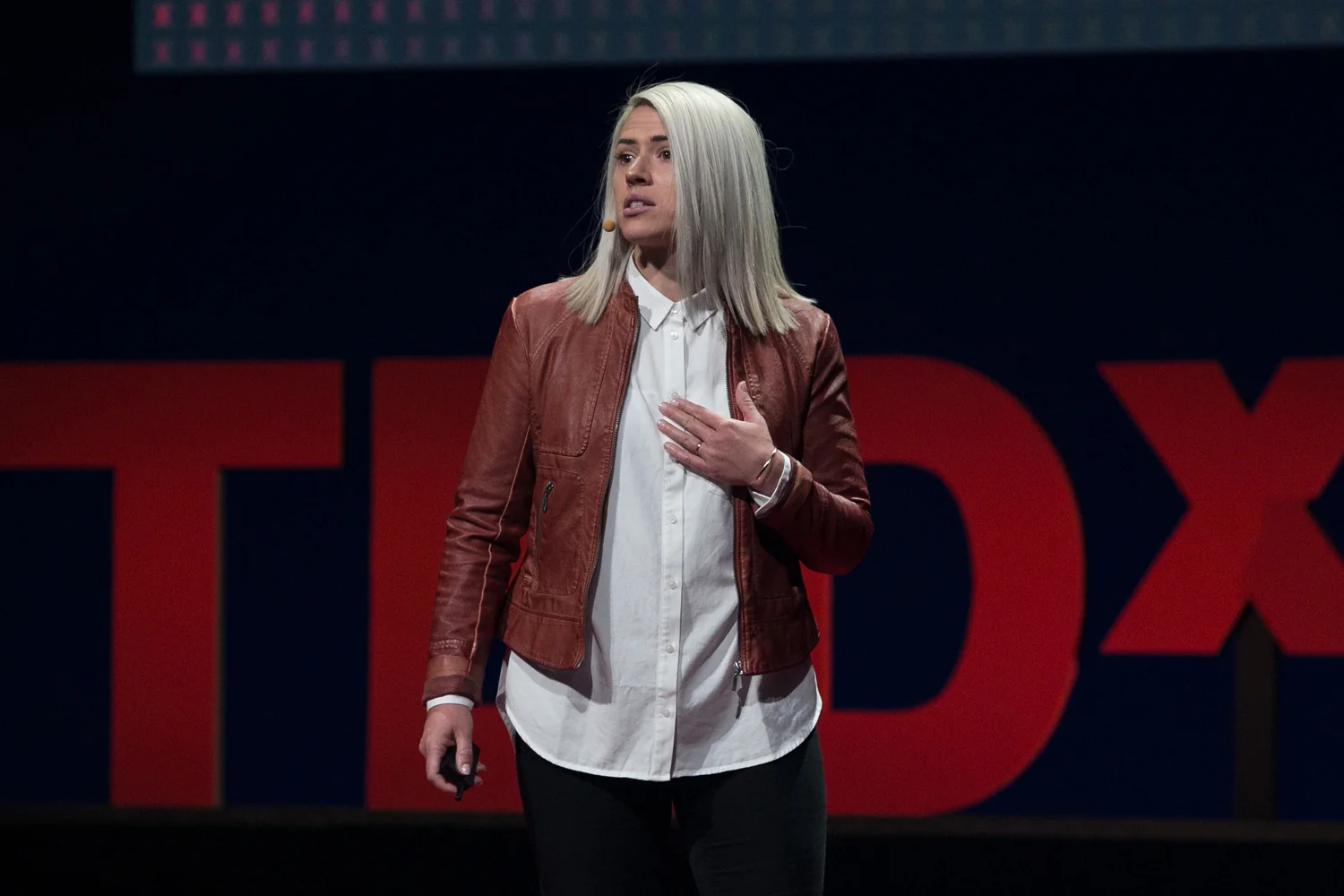


The basic premise of raising Zoomer in a gender-creative way relies on the fact that sex and gender are not the same thing. This article defines the foundational terms and concepts that our readers should know to get the most out of...